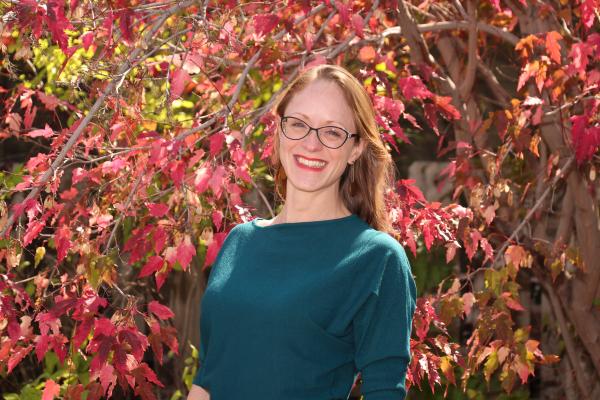CJS Thursday Lecture Series | Producing People Who Have No One: Child Welfare and Well-Being in Japan
Kate Goldfarb, Assistant Professor of Anthropology, University of Colorado Boulder
If you wish to attend via Zoom, please register at
http://myumi.ch/M9Nme
This presentation explores how cultural norms surrounding kinship, many deeply connected to national ideologies of Japanese identity, play out when kinship realities diverge from normative expectations surrounding nurturance and care. Both in Japan—where the ethnographic data for this presentation originate—and also across the world, social welfare systems too often “produce people who have no one,” in the words of one of my interlocutors. What are the conditions for a welfare system that nurtures well-being that produces people who have people?
Kate Goldfarb is a cultural and medical anthropologist. Her research focuses on the ways social relationships impact embodied experience, intersections between public policy and well-being, and the co-production of scientific knowledge and subjective experiences.
Her first book project ( Fragile Kinships: Child Welfare and Well-Being in Japan, currently under review) explored how social inclusion and exclusion shape holistic well-being. She conducted longitudinal ethnographic fieldwork with people connected to the Japanese child welfare system, examining the stakes of family disconnection in a country where the family is considered the basic social unit. This project investigated how kinship ideologies articulate with discourses of Japanese national and cultural identity, how these discourses shape understandings of what is “normal,” and how these concepts of normality are caught up in global circuits of knowledge surrounding human development, child rights, and concepts of “care” under the rubric of social welfare. This project’s analytical frameworks are shaped by kinship theory, medical anthropology, semiotics, feminist studies of science, and queer theory, investigating how past and present social relationships are experienced in visceral, embodied terms.
Her most recent research, based in the U.S., are collaborative projects that take the creation of and engagement with atmospheric data as a social field to study ethnographically. She is the Principal Investigator on a collaborative project funded by the National Oceanic and Atmospheric Administration / National Weather Service in applied meteorological research, “Smoke Exposure and Underserved Wildland Fire Communities.” An emergent project, Knowing Air, works to understand how shifting environmental factors—including increased wildfire activity and the COVID-19 pandemic—impact the ways people engage with air quality data (quantitative air quality indices and qualitative, sensory, story-based information) including measures of “invisible” pollutants such as ozone. Finally, she is privileged to collaborate with the Louisville Historical Museum on their Marshall Fire Story Project to support the collection and archiving of community experiences surrounding the devastating December 30, 2021 fire in Boulder County.
This lecture is made possible with the generous support of the U.S. Department of Education Title VI grant.
If there is anything we can do to make this event accessible to you, please contact us. Please be aware that advance notice is necessary as some accommodations may require more time for the university to arrange.
This presentation explores how cultural norms surrounding kinship, many deeply connected to national ideologies of Japanese identity, play out when kinship realities diverge from normative expectations surrounding nurturance and care. Both in Japan—where the ethnographic data for this presentation originate—and also across the world, social welfare systems too often “produce people who have no one,” in the words of one of my interlocutors. What are the conditions for a welfare system that nurtures well-being that produces people who have people?
Kate Goldfarb is a cultural and medical anthropologist. Her research focuses on the ways social relationships impact embodied experience, intersections between public policy and well-being, and the co-production of scientific knowledge and subjective experiences.
Her first book project ( Fragile Kinships: Child Welfare and Well-Being in Japan, currently under review) explored how social inclusion and exclusion shape holistic well-being. She conducted longitudinal ethnographic fieldwork with people connected to the Japanese child welfare system, examining the stakes of family disconnection in a country where the family is considered the basic social unit. This project investigated how kinship ideologies articulate with discourses of Japanese national and cultural identity, how these discourses shape understandings of what is “normal,” and how these concepts of normality are caught up in global circuits of knowledge surrounding human development, child rights, and concepts of “care” under the rubric of social welfare. This project’s analytical frameworks are shaped by kinship theory, medical anthropology, semiotics, feminist studies of science, and queer theory, investigating how past and present social relationships are experienced in visceral, embodied terms.
Her most recent research, based in the U.S., are collaborative projects that take the creation of and engagement with atmospheric data as a social field to study ethnographically. She is the Principal Investigator on a collaborative project funded by the National Oceanic and Atmospheric Administration / National Weather Service in applied meteorological research, “Smoke Exposure and Underserved Wildland Fire Communities.” An emergent project, Knowing Air, works to understand how shifting environmental factors—including increased wildfire activity and the COVID-19 pandemic—impact the ways people engage with air quality data (quantitative air quality indices and qualitative, sensory, story-based information) including measures of “invisible” pollutants such as ozone. Finally, she is privileged to collaborate with the Louisville Historical Museum on their Marshall Fire Story Project to support the collection and archiving of community experiences surrounding the devastating December 30, 2021 fire in Boulder County.
This lecture is made possible with the generous support of the U.S. Department of Education Title VI grant.
If there is anything we can do to make this event accessible to you, please contact us. Please be aware that advance notice is necessary as some accommodations may require more time for the university to arrange.
| Building: | Weiser Hall |
|---|---|
| Event Type: | Lecture / Discussion |
| Tags: | Anthropology, Asia, japan, Japanese Studies |
| Source: | Happening @ Michigan from Center for Japanese Studies, International Institute, Asian Languages and Cultures |


